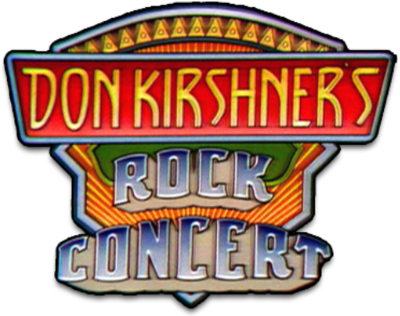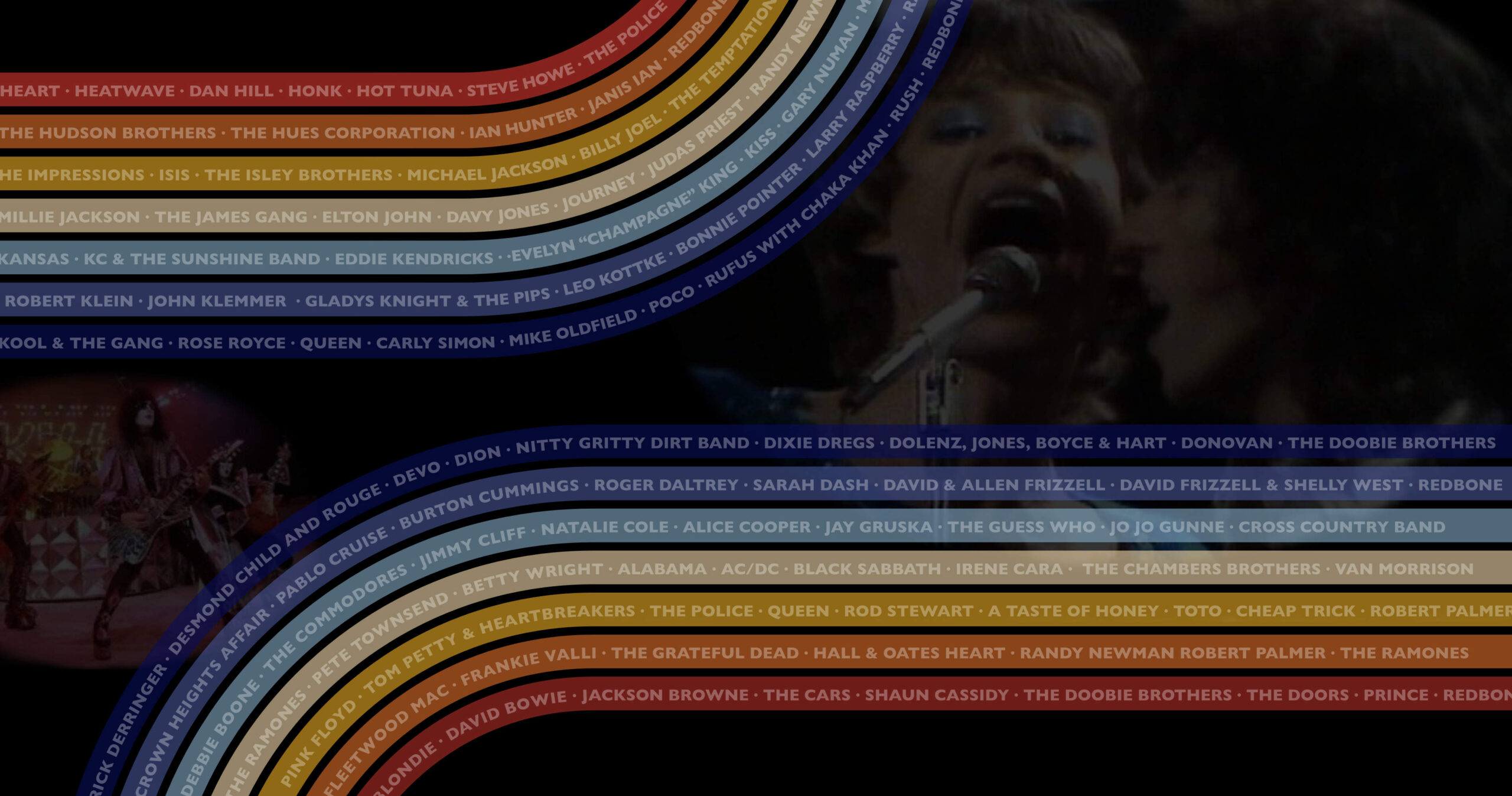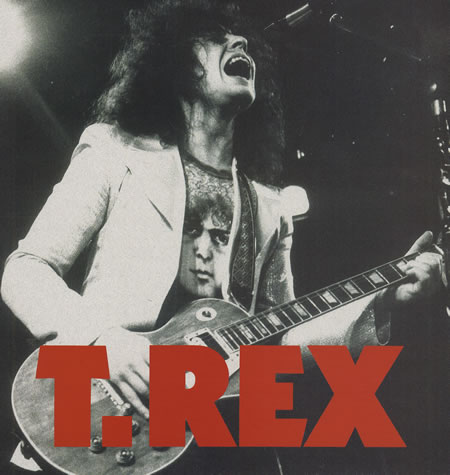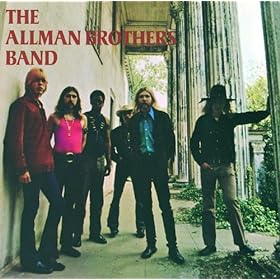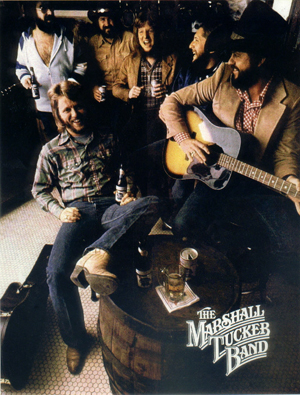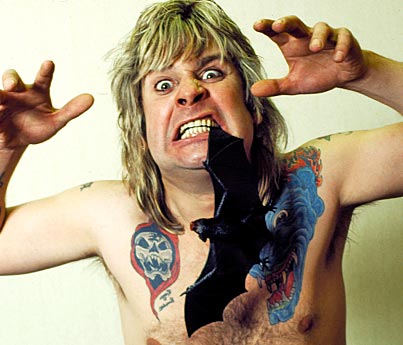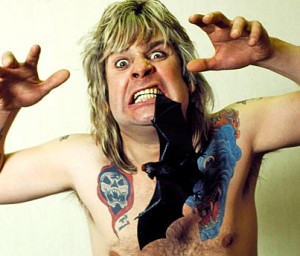
T. Rex is widely known as being one of the pioneering acts of the 1970’s Glam Rock scene. The band gained a cult following in the mid 70’s with the release of hits “Jeepster”, “Get It On”, “Ride a White Swan”, “20th Century Boy”, “Children of the Revolution”, “Hot Love”, “Telegram Sam”, and “Metal Guru”. Their outrageous costumes and flamboyant stage antics defined the Glam Rock image and set them apart from their contemporaries. On January 22, 1975, T. Rex appeared on Don Kirshner’s Rock Concert to perform “Jeepster”, “Back Street Boogie”, “Stacey Groove/ Do You Remember”, and “Get It On”.
Formed in 1967 by frontman Marc Bolan, the band performed and recorded 4 albums under the name Tyrannosaurus Rex, before shortening it to simply T. Rex after the suggestion was made by a fellow producer. T. Rex went on to produce 11 albums in total before disbanding following the death of Marc Bolan in 1977 from a car accident.
T. Rex has significantly influenced many artists and indie bands over the years. Both David Bowie and The Who have referenced Marc Bolan and T. Rex in lyrics, and numerous bands have cited T. Rex as a major inspiration for their image and musical direction.
